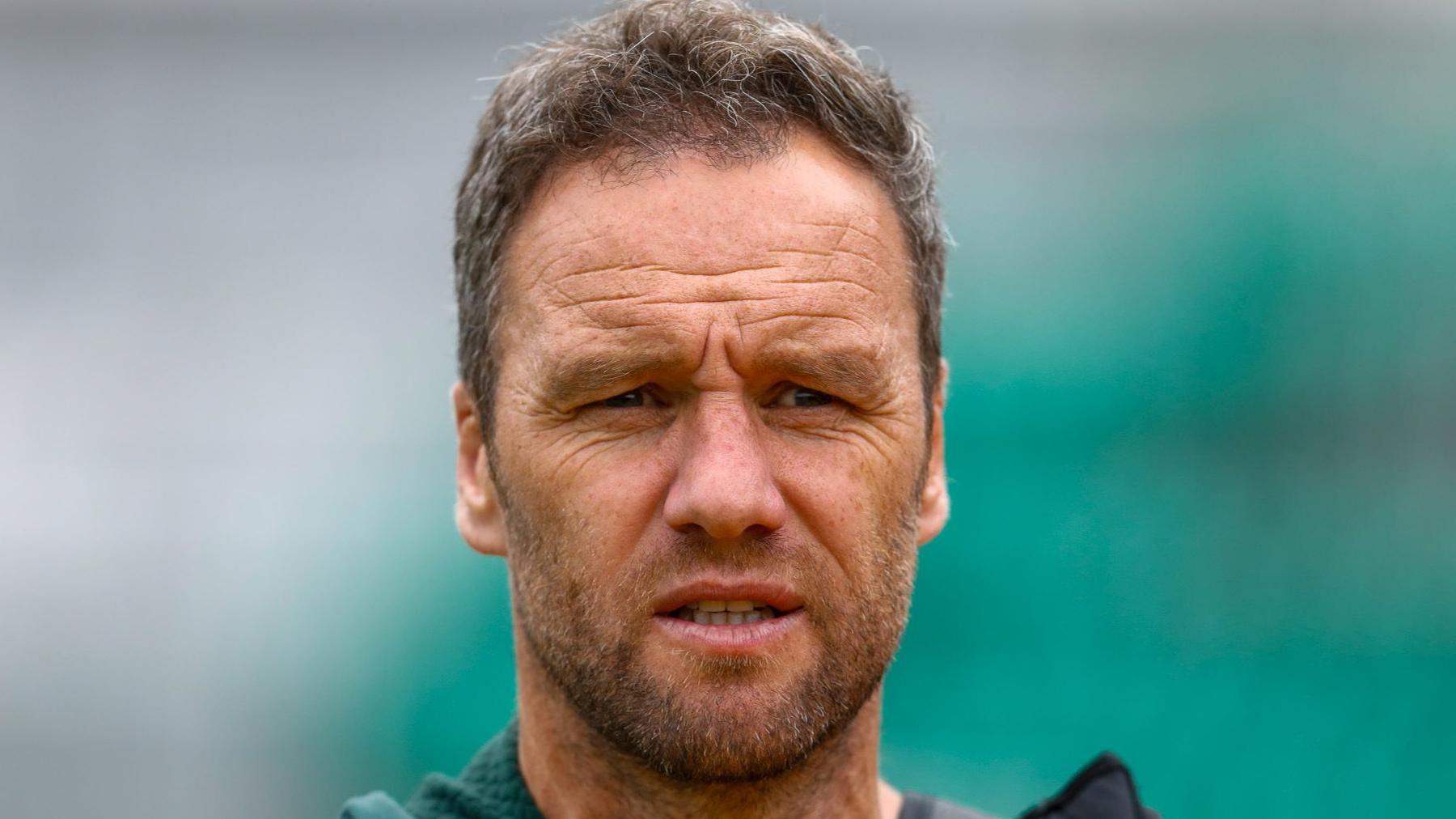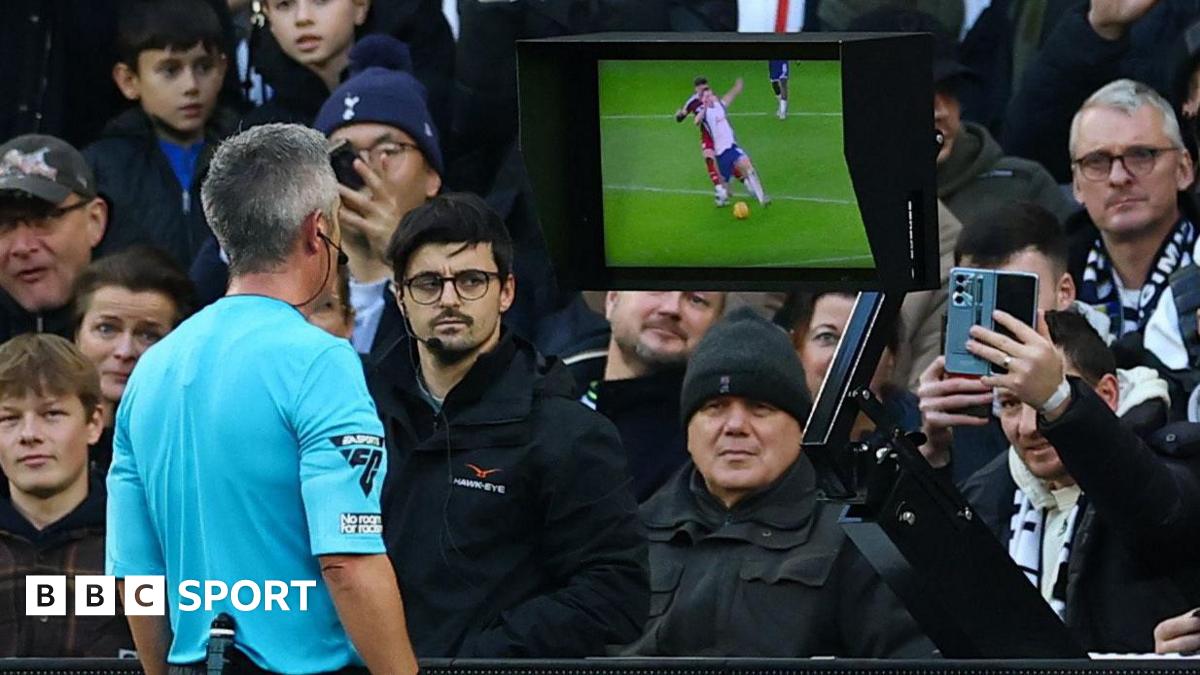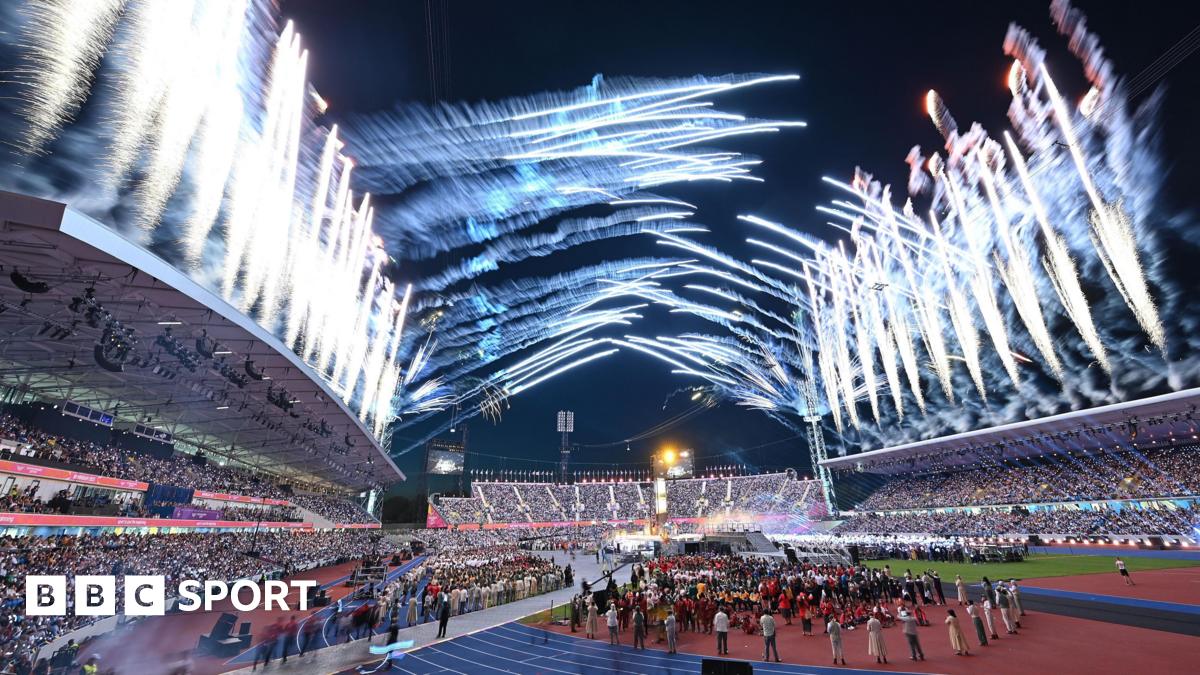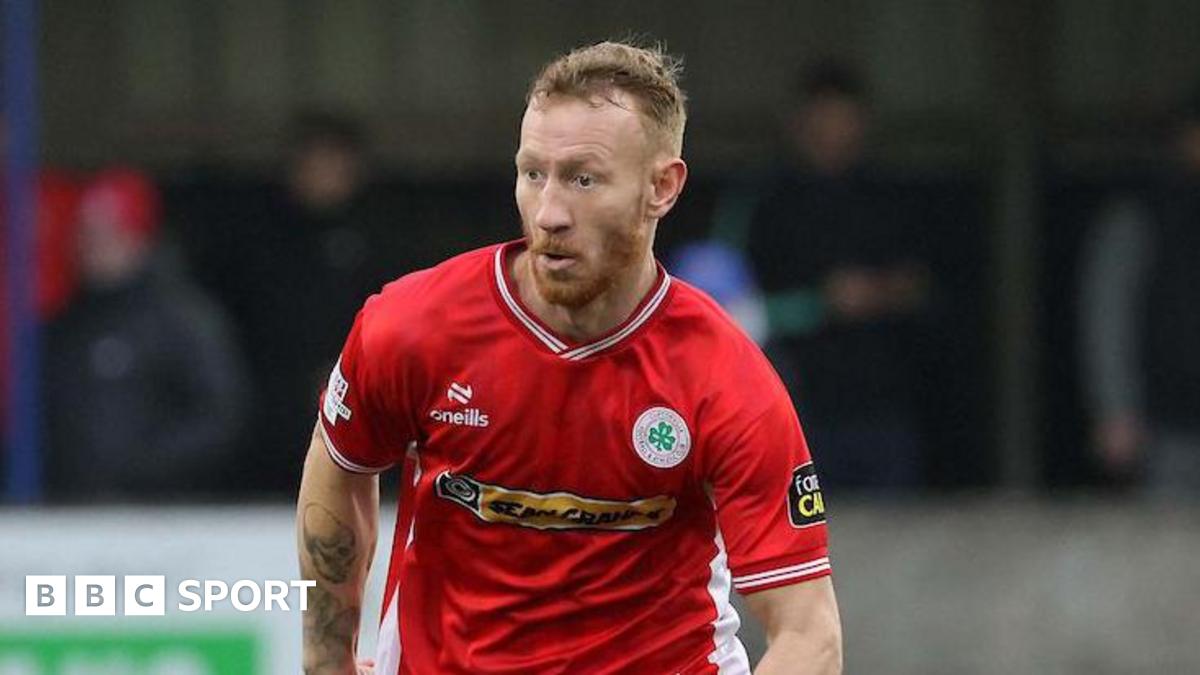ARTICLE AD BOX
 Image source, Huw Evans Agency
Image source, Huw Evans Agency
Former wing Mark Jones played 47 internationals for Wales
Gareth Griffiths
BBC Sport Wales
United Rugby Championship: Ospreys v Scarlets
Venue: Swansea.com Stadium, Swansea Date: Saturday, 21 December Kick off: 17:15 GMT
Coverage: Scrum V Live on BBC Two Wales, commentary on BBC Radio Wales; also on the BBC Sport website and app.
New Ospreys head coach Mark Jones has put in the hard yards to find himself in his current position.
Jones has been promoted to the position from his defence coach role six months earlier than expected after Toby Booth departed following last weekend's record European Challenge Cup defeat at Montpellier.
His first game in charge will be at Swansea.com Stadium on Saturday against Scarlets, the side Jones played for throughout his professional career before being given his first coaching position.
The 45-year-old is someone who has earned the right to take charge of one of Wales' four professional sides.
The story so far
Having retired from playing in 2010, a double Grand Slam winner, the Llanelli flyer embarked on his coaching career with Scarlets.
Jones was also part of Rob Howley's backroom staff for the 2013 Six Nations success with Warren Gatland on a British and Irish Lions sabbatical.
After leaving Scarlets, spells at Rotherham Titans, north Wales side RGC and the 2019 World Cup with Namibia followed before an opportunity to join Super Rugby outfit Crusaders as defence coach.
Jones, with his wife and two sons, fell in love with life in New Zealand only for the pandemic to cut short the adventure.
Having returned to Wales in the off-season, he was unable to go back to Christchurch due to travel restrictions and the opportunity drifted away.
Worcester came knocking only for the club to close its doors permanently after going bust just a year later.
Then came the chance to lead Wales Under-20s to the 2023 World Rugby U20 Championship before linking up with Ospreys later that year as their new defence coach.
Humble beginnings
It all started when Jones was recovering from a serious knee injury and started coaching hometown club Builth Wells.
"I was going there to have a break from rehab with my injuries," said Jones.
"I went there to support my local team and give a little back to the team that introduced me to the sport.
"That led to me coaching the team on a more regular basis and discovering a passion for me to coach people. I hadn't thought about it until I went up there."
Jones was surprised at what the experience gave him.
"Although it was a completely different relationship, because you've got guys who are doing their own jobs - farming or being an electrician or a builder - the smiles on the faces were exactly the same as now," said Jones.
"They sit in the changing room after a great win and they'd absolutely rather be nowhere else.
"That's a powerful thing and I liked the feeling I got from it.
"That's what got me into coaching and gave me the hunger, so when I retired and the Scarlets offered me that chance, I didn't hesitate for a second."
'This is my passion'
So working with his local club unlocked an unexpected feeling with Jones saying coaching is his "passion".
He added: "When you can't play anymore the closest thing you can get is helping people who play.
"I love coaching. It's a little bit of a drug."
Jones has suffered the highs of Six Nations success and the low of losing jobs due to Covid, ambition and the financial crisis affecting the modern game.
"Even when you have awful moments where you feel like nothing can get much worse from a job perspective, the highs keep getting you up in the morning and outweigh the lows," he said.
"My coaching journey has been like that. There have been moments where I have had to dig deep and sacrifice things.
"Driving up to north Wales. Four and a half hours up, four and a half hours back and doing a full day in between and getting home at midnight and not putting your kids to bed.
"Those moments test you whether you love it or just like it. It has tested how much I liked coaching. I don't just like it, I love it."
New Zealand adventure
The move to New Zealand galvanised Jones as he worked under Scott Robertson, now the All Blacks head coach.
"The sacrifice the family gave by moving to New Zealand has been huge," said Jones.
"I learned a huge amount there. A lot of the stuff I believed in over here they were using already, so that was awesome to think your philosophy is aligned with some of the best players and teams in the world.
"There were also things that completely changed my outlook on the game."
As well as working with Robertson, Jones has been coached by former Wales bosses Gareth Jenkins, Nigel Davies, Graham Henry, Steve Hansen and Wayne Pivac.
"To single anybody out here would be a disservice; everybody has played a part for various reasons," said Jones.
"I have taken something from everybody. I have my own style and you have to be yourself because if you try and be somebody else, the mask will slip and people will see right through you.
"I am my own person and I will do it my own way."
So having had attack and defence roles, what sort of head coach will Jones be?
"I will be honest around my work ethic, feedback and straight down the line," said Jones.
"That's all you can ever ask of somebody and my performance will be built on that. You can't promise any more in professional sport."

 1 week ago
6
1 week ago
6








 English (US) ·
English (US) ·